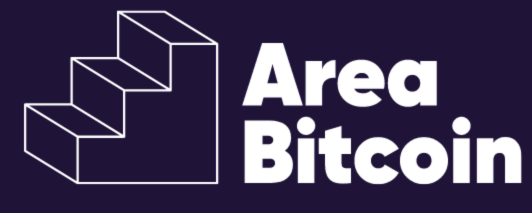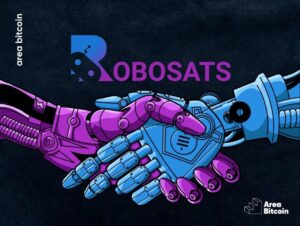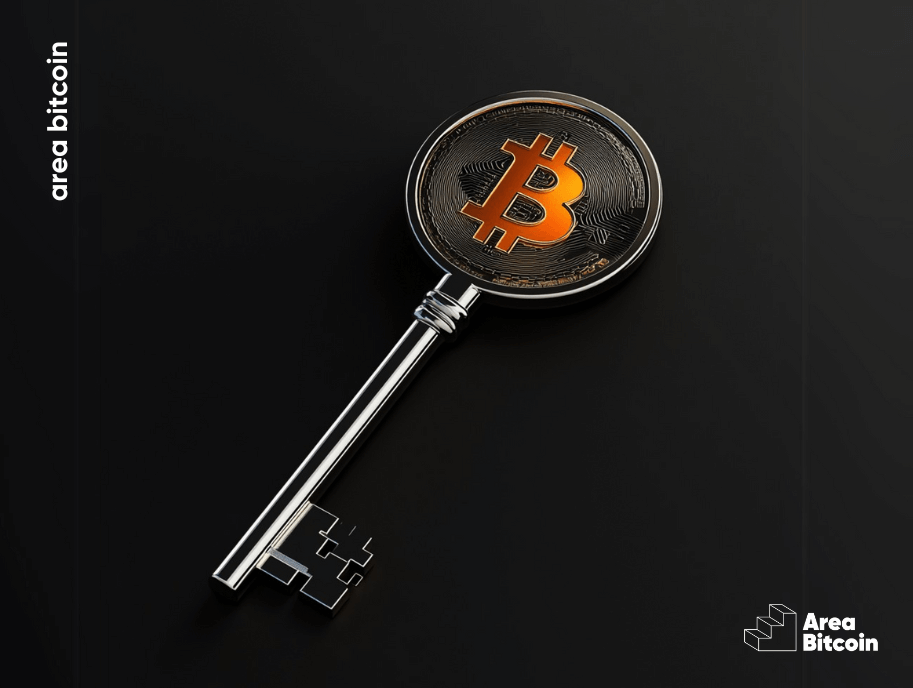Bitcoin is positioned as the great reboot of the system, poised to completely transform the financial landscape! It may seem exaggerated or a product of an overactive imagination, but the process is already underway.
Bitcoin is redefining the concept of money, revolutionizing the banks and payment systems we use, changing investment dynamics, and even altering the role of central banks and governmental structures.
While many are concerned with Bitcoin’s price fluctuations, they lose sight of its true impact:
- The gradual reassessment of the financial system
- The adjustment of global wealth distribution
- Its fundamental role in innovating various areas beyond mere financial speculation
Bitcoin is transforming the financial system in four main aspects:
- Providing a form of money that retains its value over time
- Ensuring it cannot be controlled by any single entity, promoting a governmental reshaping
- Encouraging individual responsibility and sovereignty
- Connecting money and energy more effectively than any form of money in the past
Money that retains value over time
Bitcoin introduces a form of currency capable of preserving and even increasing its value over time, fundamentally transforming the concept of money.
By opting for Bitcoin, you engage in a system where the currency not only maintains its value but also has the potential to appreciate. Since its creation, Bitcoin has increased by 9 billion percent in terms of real value, demonstrating not just a price increase but also widespread adoption.
This phenomenon disrupts the existing financial system, where traditional currencies like the Dollar continuously devalue—the dollar has lost 97% of its purchasing power.
The trajectory of fiat currencies is marked by constant devaluation.
This occurs because unlimited quantities of these currencies can be created, and politicians often exploit this to finance political agendas.
This is one reason governments are exploring digital versions of fiat currencies, known as CBDCs (Central Bank Digital Currencies), aiming to modernize but still within the traditional concept of money.
CBDCs
The World Economic Forum has described the introduction of CBDCs (Central Bank Digital Currencies) as a “great reset.” However, this term can be misleading, as this movement represents not a restart but an expansion of the current financial system’s capabilities.
The adoption of CBDCs amplifies monetary devaluation, making it easier for governments to create money almost limitlessly and instantly with the push of a button. This tends to centralize economic power further and strengthen supranational entities like the IMF and the World Economic Forum, which are not democratically elected.
Additionally, it will lead to greater restrictions on individual financial autonomy, as indicated by the words of the Bank for International Settlements (BIS) director, suggesting that CBDCs would give governments absolute control over finances.
Therefore, what Klaus Schwab described as a “great reset” seems more like the continuation and expansion of the current fiat system, where central and commercial banks increasingly ally to monopolize the financial sector and limit people’s financial protection capabilities, especially through Bitcoin.
Difference Between Bitcoin and CBDCs
While CBDCs represent a more refined control tool for authorities, Bitcoin emerges as a financial liberation mechanism, offering an escape from the impoverishment caused by relentless monetary expansion.
It has the potential to revolutionize the financial system by restoring fundamental economic incentives associated with wealth accumulation and preservation. The proliferation of fiat money and its uncontrolled printing have discouraged saving for the future.
However, following natural and universal economic principles, those who save tend to prosper. With Bitcoin, the act of saving not only preserves but potentially increases purchasing power over time, encouraging diligent work and wealth accumulation as pillars of a financially stable and comfortable life.
This dynamic is due to Bitcoin’s inherent supply limitation, capped at 21 million units, a feature established since the protocol’s inception by Satoshi Nakamoto.
In contrast to the current scenario, where many governments are mired in unsustainable debt, the ongoing practice of printing money to cover excess spending only exacerbates the situation.
This cycle not only collapses the currency’s value but also burdens future generations with the weight of questionable economic policies and corruption, compromising their ability to thrive.
Bitcoin, on the other hand, offers a viable alternative, promoting fiscal responsibility and long-term financial sustainability.
Money that Cannot Be Monopolized by Anyone!
Bitcoin cannot be monopolized by anyone. By removing control and printing capabilities from politicians’ hands, it will not only reshape money and the financial system but also how governments operate.
Before the era of fiat money, it was uncommon to hear politicians promising to finance extensive public services with tax revenues.
In fact, many were cautious about making grand promises.
This changed in 1971 when the gold standard was abandoned, allowing governments to print money without gold backing. This shift ushered in a new era of governance characterized by irresponsible government spending and chronic deficits.
Politicians began winning elections by promising to redistribute vast resources without considering financial sustainability. These promises, in practice, meant printing more money, resulting in currency devaluation and erosion of purchasing power, while living costs continued to rise.
Bitcoin offers a completely different paradigm. It eliminates the possibility of financing populist policies through uncontrolled money printing, preventing political and economic manipulation.
Instead, it rewards those who contribute to the network’s security by providing computational power to protect the protocol and keep its records tamper-proof.
This reward for real work — mining — is fundamentally different from fiat money creation, which is imposed on citizens without choice, reflecting forced adoption under government monetary policies’ monopoly, unlike Bitcoin’s organic and voluntary adoption based on merit and utility.
Accessible and Censorship-Resistant Money
Bitcoin is redefining the global financial landscape thanks to its decentralized nature.
Unlike traditional systems, Bitcoin’s network is open to everyone, without monopoly possibilities. At any time and anywhere in the world, individuals can freely participate by creating wallets, making transactions, operating nodes, mining, or verifying the network without restrictions.
Immune to shutdowns, the network operates continuously, even reaching regions without internet access.
Financial Autonomy
Bitcoin’s revolution also lies in promoting individual sovereignty, encouraging financial autonomy, conscious decision-making, and responsible financial planning.
By facilitating direct transactions between people without banking intermediaries, Bitcoin empowers users to choose higher quality products, stimulating a less disposable and more sustainable industry.
It also alters our relationship with consumption, encouraging less consumerist behavior and more confident resource management.
In contrast, fiat money promotes a culture of immediate gratification, impulsive consumption, and reliance on banking systems, limiting financial freedom and personal autonomy.
Activists challenging the status quo, like Edward Snowden and Julian Assange, exemplify how the system can repress dissenting voices through financial control.
Human Rights
Additionally, Bitcoin strengthens human rights, ensuring that even under authoritarian regimes, individuals can protect their resources. It empowers people, aligning with the premise that politicians should serve the population, not the other way around.
Reforming the relationship between money and energy, Bitcoin realizes predictions from visionaries like Nikola Tesla and Henry Ford, who anticipated a future link between these elements.
By stabilizing renewable energy networks, monetizing excess, and mitigating intermittency, Bitcoin promotes an energy revolution. It encourages decentralized and efficient energy production, proposing a new paradigm: energy as a value to be generated and preserved, not just consumed.
In summary, Bitcoin is not just a technological or financial advancement; it is an energy evolution and a movement towards a more sustainable, autonomous, and fair future.
Bitcoin is the True Reboot of the Financial System!
Bitcoin redefines our interaction with money, changes how governments operate by removing their ability to print currency at will, revitalizes our self-esteem by providing direct access to this robust network with complete independence, and drives the energy revolution at an unprecedented speed compared to any other existing technology.
It embodies multiple innovations in a single platform. While it seems like a single innovation, it represents countless possibilities previously unattainable.
We hope you enjoyed this article.
See you next time, and opt out!
Share on your social networks:

One of the leading Bitcoin educators in Brazil and the founder of Area Bitcoin, one of the largest Bitcoin schools in the world. She has participated in Bitcoin and Lightning developer seminars by Chaincode (NY) and is a regular speaker at Bitcoin conferences around the world, including Adopting Bitcoin, Satsconf, Bitcoin Atlantis, Surfin Bitcoin, and more.
Did you like this article? Consider buying us a cup of coffee so that we can keep writing new content! ☕







